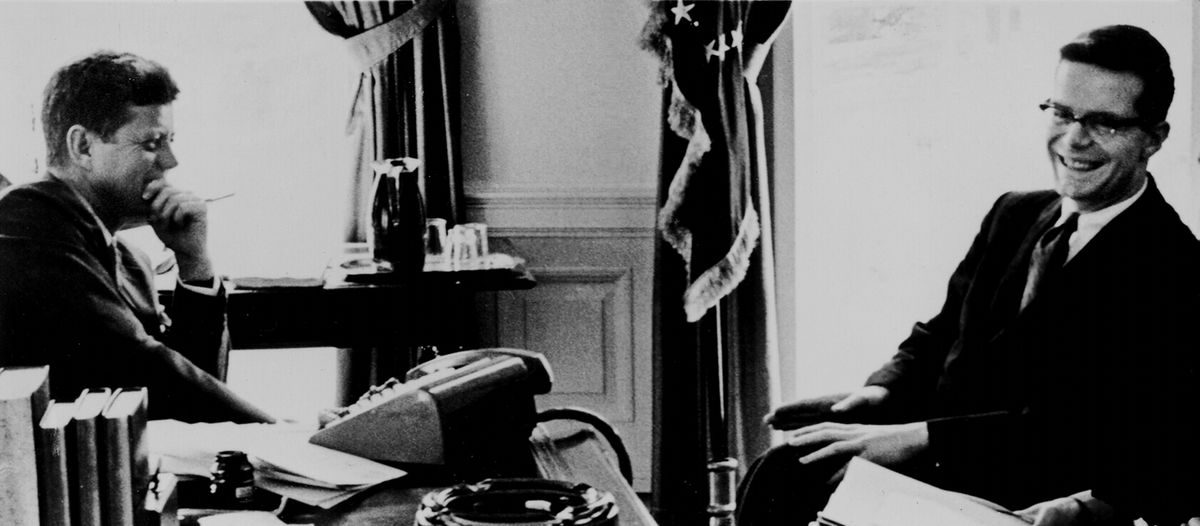Kennedy adviser Sorensen dies at 82
President’s speechwriter helped ‘climb to greatness’

Theodore C. Sorensen, John F. Kennedy’s close adviser who became special counsel to the president and remained chief speechwriter during Kennedy’s brief presidency, died Sunday. He was 82.
Sorensen, who had a long post-White House career as a Manhattan-based international lawyer, died Sunday at New York Presbyterian Hospital/Weill Cornell Medical Center from complications of a stroke, said his wife, Gillian.
Once referred to by Kennedy as his “intellectual blood bank,” Sorensen began his nearly 11-year relationship with the future president in 1953 when Kennedy was the newly elected senator from Massachusetts.
Hired as Kennedy’s No. 2 legislative assistant, the 24-year-old graduate of the University of Nebraska School of Law soon was enlisted to help Kennedy draft his speeches and magazine articles, and he played a key role in the research and writing of “Profiles in Courage,” Kennedy’s Pulitzer Prize-winning 1956 bestseller.
Sorensen also became a trusted adviser to Kennedy, traveling with him to every state in the four years leading up to his 1960 election as president.
After Kennedy moved into the White House, Sorensen advised the president on issues such as civil rights, the decision to go to the moon and the 1962 Cuban missile crisis.
Jacqueline Kennedy once inscribed a photograph to Sorensen: “To Ted, who walked with the President so much of the way and who helped him climb to greatness.”
In his 2008 autobiography “Counselor: A Life at the Edge of History,” Sorensen acknowledged that Kennedy “was my hero.”
Historian Robert Dallek, who wrote the 2003 Kennedy biography “An Unfinished Life,” told the Associated Press in 2008 that Sorensen “served Kennedy brilliantly. And he was as close as any administration figure could get to Kennedy.”
The success of “Profiles in Courage” significantly increased Kennedy’s national profile and stature as a politician. But it also spurred speculation that the book had been ghostwritten, in particular by Sorensen.
Responding to those charges, Sorensen stated in an affidavit at the time that the book’s author was Kennedy, “who originally conceived its theme, selected its characters, determined its contents, and wrote and rewrote each of its chapters.”
But it was as a speechwriter for Kennedy, that Sorensen is best remembered.
Discussing his role as speechwriter in his autobiography, Sorensen wrote that as “a young man raised by his parents to help improve society, I could hardly have asked for a more psychologically rewarding opportunity than to be in a position to help a dynamic leader, whose values I shared, reshape our country and planet at a time when I had no power to do so.”
Whatever success he achieved as a speechwriter for Kennedy, Sorensen wrote, “arose from knowing the man so well.”
Sorensen later described the president’s assassination in Dallas on Nov. 22, 1963, as “the worst day of my life.”
“Deep in my soul,” he wrote in his autobiography, “I have not stopped weeping whenever those events are recalled.”